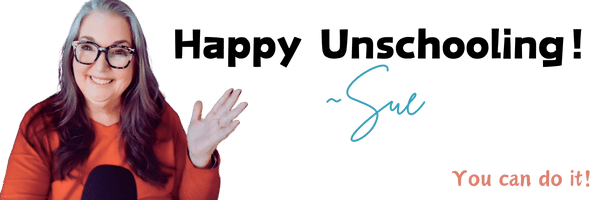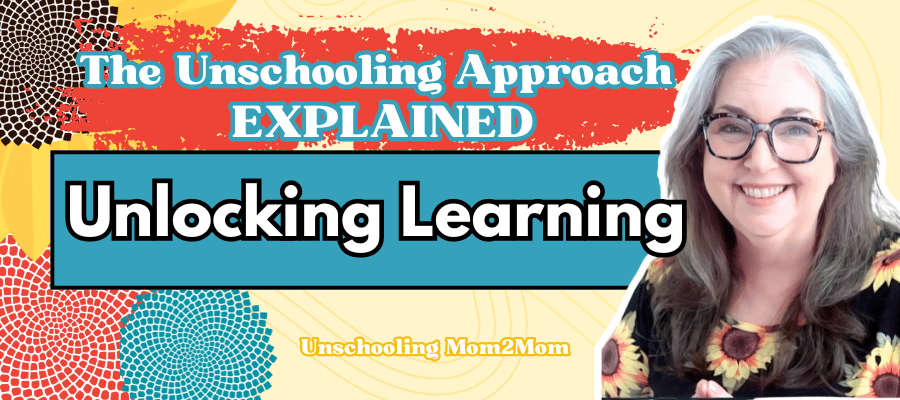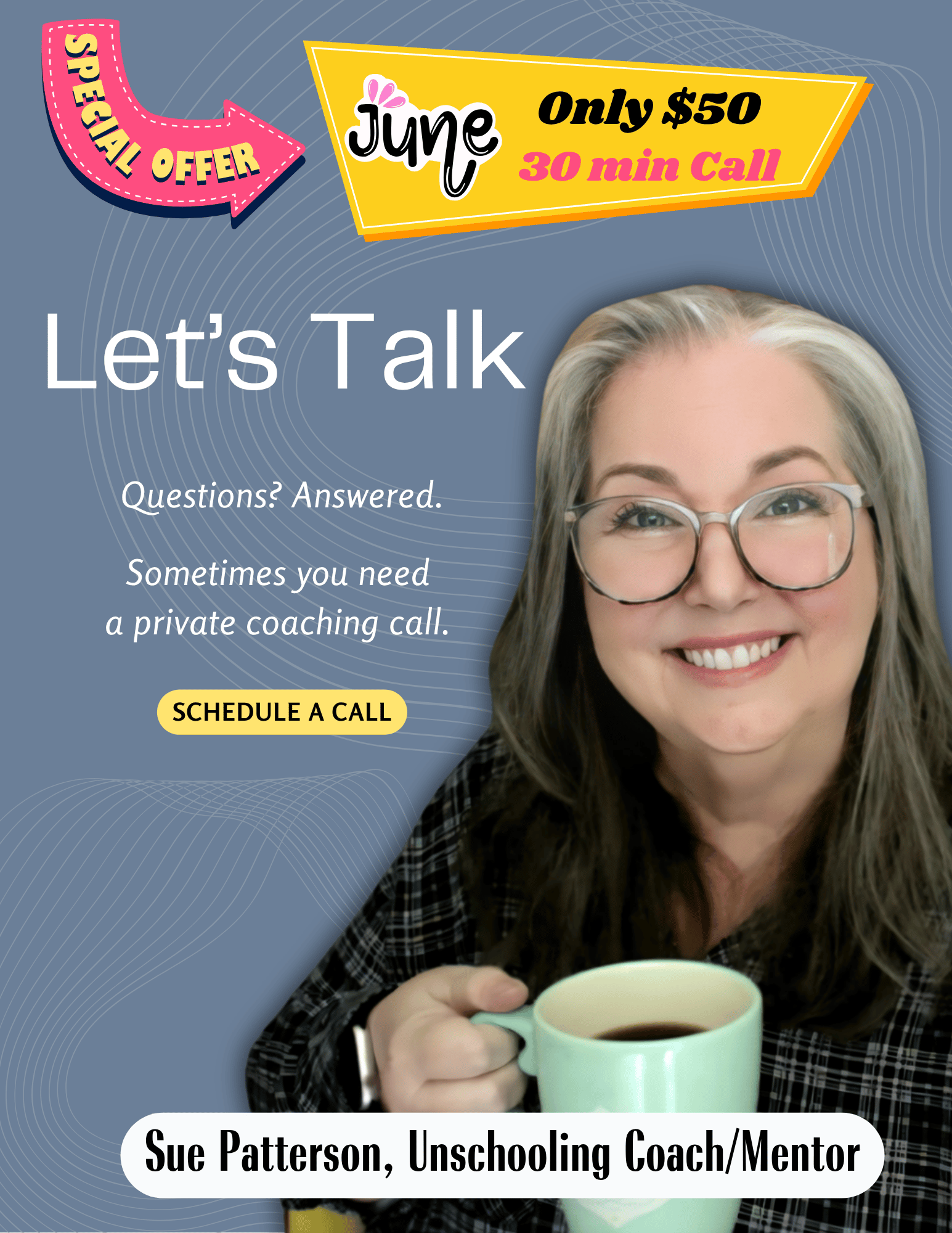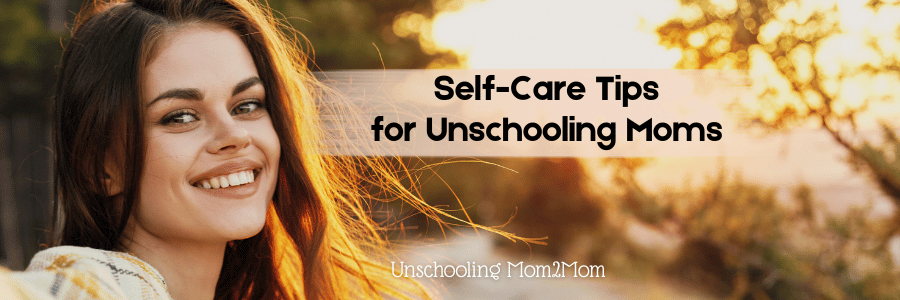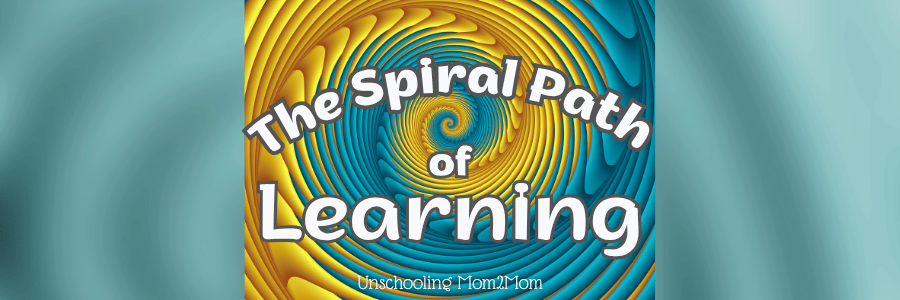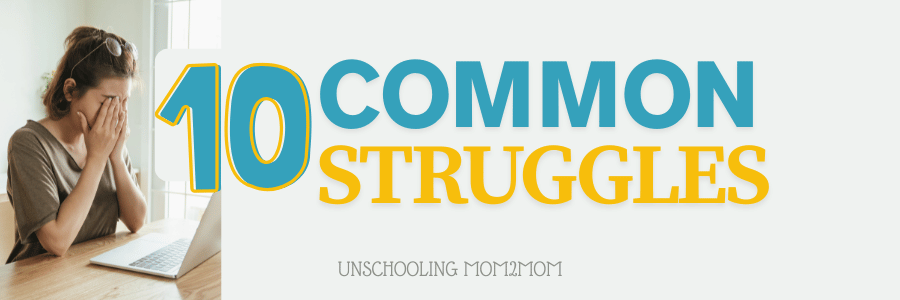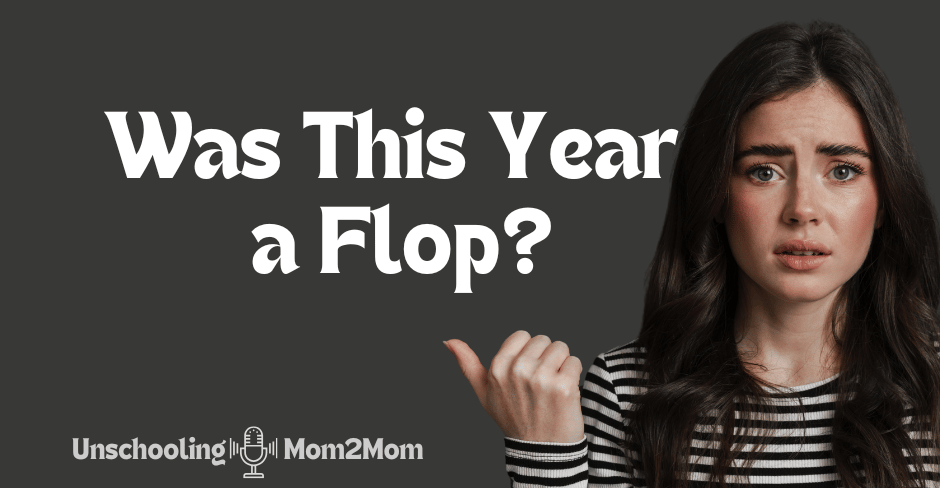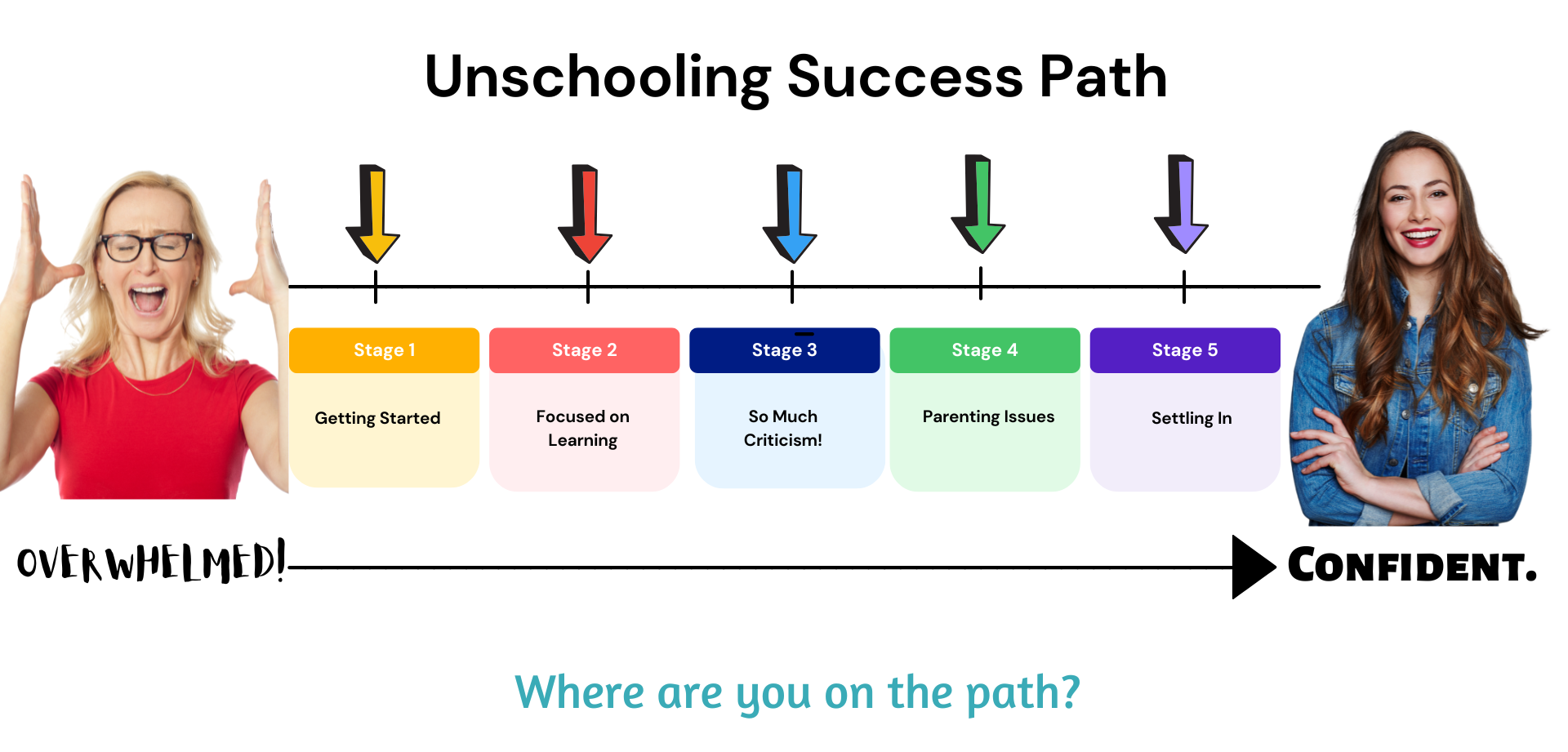Unlocking Learning - Unschooling Explained
Podcast Transcript
I’m working on a free mini-course for those who are brand new beginners to switching to home education.
Lots of people are wrapping up their school year and they’re thinking... I don’t want to do this again next year.
And they need some truly practical How.to.Start.
BUT! Lots of you - probably most of you listening - are NOT Brand new. You may be newish, or maybe you’re homeschooling and thinking of switching to unschooling. Or you’re still kind of wondering how unschooling can help kids learn what they need.
I know, it sounds like I’m rambling, but I’m not! In that free miniseries that’s coming, one of the videos is all about the learning - and I thought - My podcast listeners will really want to hear this one too. Especially this time of year when people are looking ahead and trying to figure out what they’re going to do.
So this week, I want to talk with you about how the kids are going to learn what they need WITHOUT you wasting a bunch of money on curriculum.
Hello!
If you’ve been following the Unschooling Mom2Mom podcast - great! Welcome back! I hope you’ve subscribed at whatever platform you’re listening on.
And if you’re new, here, I’m your host, Sue Patterson, mom to 3 grown unschoolers all in their 30s. And I’m doing this - all of this - podcasts, courses, guides, membership communities, social media, private and group coaching - because Unschooling Works. And I want anyone who is struggling with WHATEVER approach they’re using,to know really good options exist - you don’t have to stay stuck with something that’s not working.
Unschooling worked for my kids and for thousands of others.
And I want you to know that it can work for you - and I have all kinds of resources to help you see specifically how to do it! All of that is over at the Unschooling Mom2Mom.com website, RIGHT HERE. I’d love to talk with you to help you answer some of your questions and overcome your fears about doing something so unconventional and unfamiliar.
Learning Without Curriculum
And that ties into what we’re talking about this week. Learning. And specifically, learning without buying curriculum.We’re so used to that being the only way we consider legit. We may vary the curriculum - but using SOME kind of curriculum, some kind of one-size-fits all plan, we seem to believe in our core that that’s the universal starting place. Stepping away from that is so unfamiliar it feels scary.
And curriculum companies are right there, ready to keep you buying. Keep preying on those fears.
- Fears you may have about not knowing what to do - they’re happy to tell you.
- Fears that your kids will suffer because of your choice to do something unconventional - they want to b the one to get you back on the path (and remember, they don’t care if it’s a path that wasn’t really working for you. They think you just need to try harder, or buy something new.)
- Sometimes they’re preying on the fear you may have about not being creative enough to figure this out (or too tired or too distracted) - they’ll give you colorful worksheets and text books that PROMISE your kid will love.
Overall,
they want to trade cash for confidence.
They don’t really want you to THINK, just trussssst them.
And if you’re really afraid, they know you’ll cough up even more cash for this confidence they promise.
But I’m here to tell you that you don’t need them. I was no rocket scientist with unending patience and creativity.
What I DID have, was a willingness to learn.
And now, luckily there are so many ways for you to get the information you need.
If you fall asleep reading blogposts or PDFs? Don’t worry, there are podcasts or videos for you.
You still PERSONALLY like checklists and worksheets?
We can get you those too without you being led by the nose - and then forcing your kids along with you - through 12 years of scope and sequence designed by people who don’t know your kid.
What unschooling does, from a learning standpoint, is start with the Learner.
Start with the interests.
Then ripple out from there.
That way you’re never pushing and prodding to get them interested in something kind of blah.
Because, for those of us who have tried that...
that IS exhausting!
And they still don’t retain what you were going on and on about!
And here’s the good news, because I know SO MANY grown unschoolers, I can tell you with 100% confidence that starting with their interests is the BEST way to go. Yes,
there will be gaps. But not UNFILLABLE gaps! As soon as they have a need for the information, they can hop online and get it. And, truth be told, kids who were run through the ringer of 12 years of school - they have a ton of gaps too! And maybe not so proficient at searching through resources. They’re waiting for someone to teach it to them. Your kids will have the the time and space and opportunity to improve this skill.
At the heart of our gap worries, we’re thinking they need to know certain things to be successful.
Interestingly, I’ve seen a lot of parents move the goalposts on themselves and their kids when they’re thinking,
“We’ll just learn the basics, and then they can do what they want.”
But then the kids become teens and we panic a little...
"well, maybe diagramming sentences or that quadratic equation...but that’s it."
Fear makes us add on and on... and then the kid resists or thinks that their interests don’t matter as much as these other things you’ve told them REALLY matters more.
We took a different approach with my own kids. We dove into their interests, and worked out from there. The school way - the way that most of us are familiar with - wants us to focus on keeping them interested (somehow) in things that really don’t interest them now… because, maybe someday they’ll need it. Research and our own experience shows that we don’t retain those things very well. So all that effort and time, just rolls off.
What we DO retain, are the things that are relevant. Things that interest us. That has proven to be a much better starting place. Then as kids move around in their interests, they inevitably develop new vocabulary, read or hear how stories are written, learn about science topics or historical events, or have to make some kind of calculation to figure out the answers they’re looking for. And when they bump into something unfamiliar, THAT becomes the catalyst to learn something they didn’t know. The true Basics. The things they need to go deeper. Think about that. That’s what the “Learning the Basics” is supposed to provide. The scaffolding for those more advanced ideas that we bump into as we move forward.
THink about your real life. Your day to day life. The things that you do whether you’re a delivery person or a waitress, a city worker or a homemaker…. What do you need to know? Then, if you’re an engineer or a nurse or a lawyer or an architect… you move in that direction because you LIKE diving deeper into these areas. And as older teens, we see kids take community college classes as they transition toward these kinds of higher level educational paths.
Another interesting thing, When my daughter took some pre-college credit classes at community college - she noticed that her classrooms were filled with students who had already spent 12 years in school! They had diplomas. And they were NO FURTHER along academically than she was. She had spent her teen years doing community theatre, voice lessons, dance classes. She wrote some fan fiction, understood the math involved in working at Barnes and Noble, doing her taxes, budgeting and buying what she needed. We traveled and explored various places and their historical and cultural impacts.
But no curriculum.
No times table memorization.
No research papers.
She did fine in those classes, using them as a transition from a play-based… life - to college classes and a degree. And those classmates who had jumped through all those school hoops… were in exactly the same place she was. Only they hadn’t had the kind of childhood she had had.
My son filled his teenage years with travel, work, community service projects, and World of Warcraft (among other games) - but notably no academic pursuits until college. He ended up with a degree in Journalism (Magna Cum Laude even) and an MBA.
My youngest skipped all the higher academia, became a hair stylist and now owns a successful salon where people work for HER. She runs payroll, pays mortgages, keeps inventories… she didn’t need 12 years of school to do it.
My kids are not unique. Thousands of unschooled teens are enjoying this same path. Yours can too. I have resources at the website to help you wrap your brain around all this. Because certainly we were conditioned to believe that EVERYONE needs the same 12 years of starting - whether it’s in school or in a traditional homeschooling setting. And that’s not even the truth.
I’ve created a pdf to go with that free mini-course - helping you see that Real life offers what you need. We ust have to shift our thinking so we can notice all the learning and opportunities that are happening all around us. That should be ready in a week or two.
But I have Guides and ebooks I’d love to show you - when you tap into these, you discover examples of subjects weaving through our days. The
Everything Counts Ebook and the
Deschooling Guide are great for this. And if it’s math that bugging you a little more than the other subjects, I have a course (Learning Math WiTHOUT Curriculum )that will help you see how everyone can learn all the math they need - without buying curriculum. I’ll put links to all these resources in the show notes.
This is the path to developing confidence.
Accessing the information that’s available will help you clean off the lens so you can see more clearly.
Then, after you’ve created a little space between what you USED to believe about learning and where you are now, I have a tool to help you brainstorm with the kids about their interests. They may not even know what to tell you. Not only do they have less life experience, but they may have been told to squash down their own curiosities to fulfill the requirements of the adults around them. Think of it as tiny fire that needs a little more kindling. A little protection from the wind.
As you continue to expose them to interesting things in your home, your community and the world, their learning will occur naturally.
I’ve added a page for you to write some things down - or you can get the
Unschooling Guide to really brainstorm with the kids about what else is out there. I have ideas for everyone to explore at home or out in the community. Solo activities or things that would be fun with the family. Get those wheels turning. And if you need another tool to help the kids SEE some of the things they could be opting for, grab the
Unschooling Guide about Brainstorming. It’s more in depth, giving you some ideas to help the conversation go smoothly as well as suggestion for 20 different categories that might be fun to explore! Remember, you’re going to think like a tourist!
